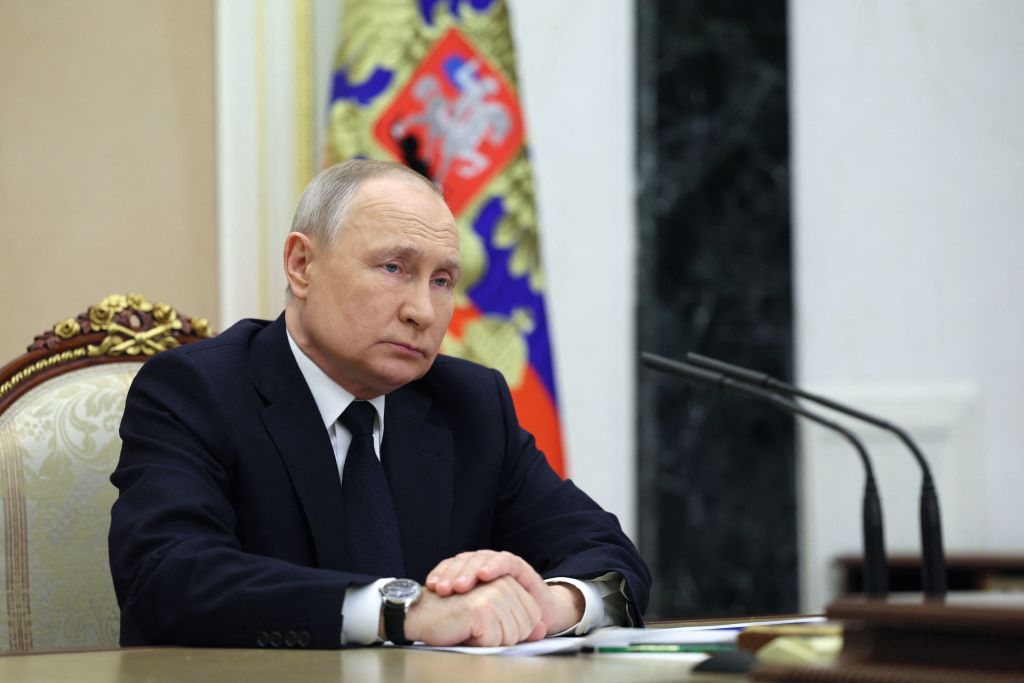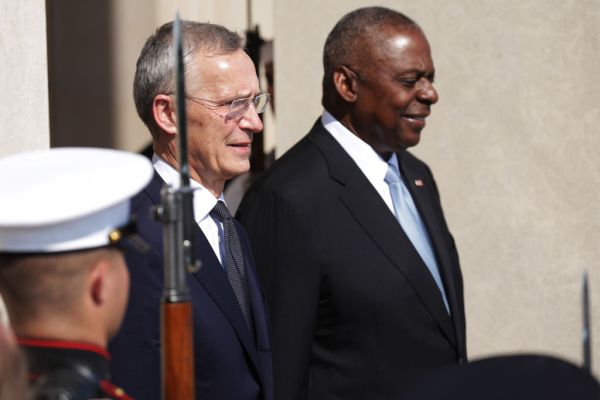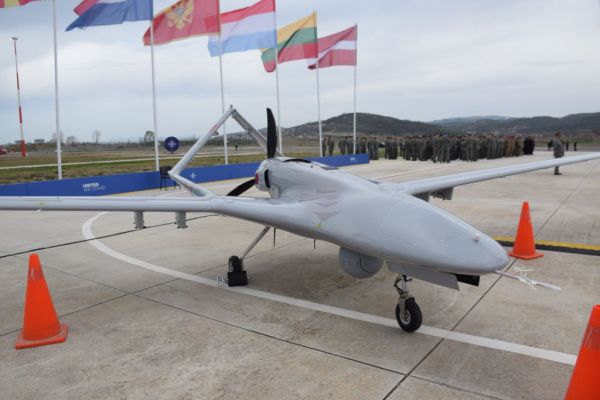President for life Vladimir Putin’s latest attempt to unsettle the West and hint at nuclear escalation—announcing the intended movement of Russian tactical nuclear warheads into Belarus at the request of his Mussolini-like ally Alexander Lukashenko—is risible. It represents a continuation of Putin’s efforts to manipulate Western fears (and the well-documented concerns of the Biden administration) about the escalation risks of continued military assistance to Ukraine. It is deeply unserious but nevertheless has gained some resonance in mainstream media and on Twitter. Let’s be clear about this farce.
First, Russia maintains a bloated arsenal of medium- and short-range nuclear weapons, thanks to Putin’s violations of agreements to drastically reduce that arsenal reached in the early 1990s between his predecessors and President George H.W. Bush. Putin’s forces do not need additional lodgments in Belarus to threaten all of Ukraine: They can already do so from their bases inside Russia. Moreover, Russia has long deployed dual capable SS-26 Iskander missiles in Belarus. Putin’s apparent intention to station nuclear warheads there merely makes explicit a “nuclear threat” that has been implicit for some time. It barely changes the status quo.
Second, an announcement made in Moscow by the Russian president on behalf of his Belarusian puppet hardly constitutes a joint decision. Deployment of Russian nuclear weapons would violate the current constitution of Belarus, which Lukashenko is now rushing to amend to provide a legal basis for such deployments. As the Belarusian democratic opposition has noted, this kabuki dance merely highlights the degree to which Belarus has become a satellite of Moscow—a “nuclear hostage.”
Third, Putin’s ostensible justification, that this announcement is a measured response to an announcement by the U.K. that it is preparing to provide Ukraine with depleted uranium rounds for tank-killing purposes just does not parse. These rounds, whose density allows them to pierce armor more effectively than conventional rounds, were used extensively in the first Gulf War and the Balkans wars of the 1990s. An IAEA assessment found that the “existence of depleted uranium residues dispersed in the environment does not pose a radiological hazard to the population of the affected regions.” The Russian president is manipulating Herthe word “uranium” to suggest that this form of assistance to Ukraine’s general-purpose forces is somehow “nuclear” in character. It is a cynical lie.
Fourth, Putin’s effort to offer a partial justification of the move by pointing to NATO’s small deployed nuclear arsenal ignores the facts that NATO’s weapons are not newly deployed. This arsenal has deterred Soviet and Russian aggression since the 1950s; moreover the Soviet Union (to which Russia is the successor state for arms control purposes) in joining the Nuclear Non-Proliferation Treaty in 1972 agreed to those NATO deployments to forestall the possibility that other NATO states (principally West Germany) might develop their own nuclear weapons. The NATO weapons, under U.S. control but designated for wartime use by NATO, are assigned to NATO air forces that train heavily on how to handle and operate such systems; the Belarusian forces have no experience with nuclear weapons, and Putin would never assign or trust them in such a role.
Fifth, the “threat” of these promised new deployments, to the degree it exists at all, is not to Ukraine but to NATO. Once again, Putin seeks to weaken NATO’s support for Ukraine by underscoring the nuclear threat he poses to the alliance. In the face of such continued attempts at nuclear blackmail, it is incumbent upon NATO to resist all forms of Russian pressure.
Finally, Xi Jinping has just learned how reliable his junior partner is and how much regard Putin has for promises made to and with his fellow dictator. On March 21, Putin signed a joint statement with Xi which read in part, “ All nuclear powers must not deploy nuclear weapons beyond their national territories.”Four days later he announced the Belarus deployments. So much for “friendship without limits.”
Putin’s pathetic effort to grasp at nuclear straws is a clear testimony to the fact that Russian offensive operations in Bakhmut and elsewhere are failing to dislodge Ukrainian forces. This failure comes at a horrific cost to Russian soldiers pressed into service by mobilization and contract soldiers being used as cannon fodder for the “meat grinder” that the Russian military has created in eastern Ukraine. This desperate gambit is clearly intended to slow or disrupt the provision of Western assistance that will enable Ukrainian counter offensives to take back territory seized during Russia’s two wars of aggression against Ukraine. The Biden administration, and Western leaders in general, would be well-advised to treat it with the seriousness it deserves—by ridiculing and then ignoring it.








Please note that we at The Dispatch hold ourselves, our work, and our commenters to a higher standard than other places on the internet. We welcome comments that foster genuine debate or discussion—including comments critical of us or our work—but responses that include ad hominem attacks on fellow Dispatch members or are intended to stoke fear and anger may be moderated.